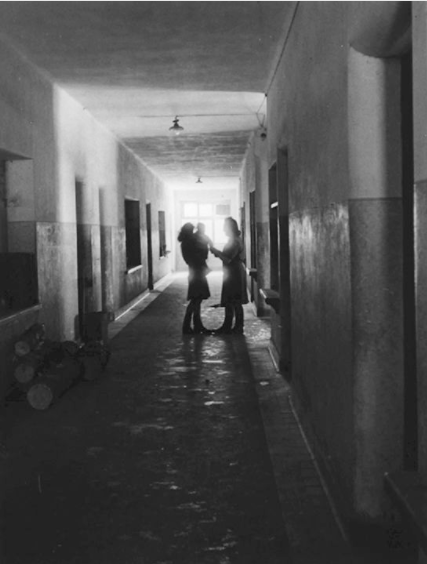
"The voices of survivors have become a central part of how we understand the Holocaust. Today there are hundreds of memoirs on library shelves and thousands of hours of recorded audio and video testimony in archives. After the war, these stories emerged only slowly. Some survivors preferred to remain silent or were discouraged from speaking; for others, sharing their experiences was simply too painful. And for many survivors, the desire to tell their stories was outweighed by the belief that those who weren’t “there” - in the ghetto, in hiding, in the camps - could never truly understand. Author Elie Wiesel has said, 'Only those who were there will ever know, and those who were there can never tell.' Sonia Weitz, a poet who survived five camps, prefaced her memoir by asking, 'But how does one bear witness to the unspeakable? . . . Normal standards do not apply to the Holocaust. Even language fails and words like hunger, fear, hot, cold, and pain lose their meaning. In fact, the Holocaust is a crime without a language.''
Source: Facing History
 Two women photographed with a baby inside the Displaced Person camp at Bergen-Belsen in 1947, which was formally the SS officers' barracks.
Two women photographed with a baby inside the Displaced Person camp at Bergen-Belsen in 1947, which was formally the SS officers' barracks.
Source: The Wiener Holocaust Library
Although liberation, brought freedom to those persecuted and imprisoned by the Nazis, it was also a time of confusion and difficulty. Those who had survived the Holocaust had to come to terms with the loss of their family, home, friends, businesses and belongings. For many, there was nowhere and no one to return to. On top of this, camp survivors in particular also suffered from poor health due to years of malnutrition and poor sanitation. In Bergen-Belsen alone, 13,000 people died following liberation as a result of the conditions in the camp. Liberation marked the beginning of a complex and difficult journey for survivors to reconstruct their lives.
The story of the survivors, from the moment of liberation to their experiences searching for family members and loved ones. The magnitude and complexity of liberation was a bittersweet moment for most survivors, as was their attempts to return home and try and locate relatives - often all gone - and the postwar anti-Jewish attacks, dilemmas, and hardships.
Source: Yad Vashem
In this video Dr. Na’ama Shik [from Yad Vashem] provides an introduction to the complexity of liberation and the physical and emotional state of the survivors during the early days following the atrocities.
This programme considers the aftermath of the Holocaust immediately following the war, when the full extent of its evil finally came to light. The plight of European Jews continued into the post-war period, with most unable to return to their homes and facing long and, at times, fruitless journeys to seek refuge overseas. Students will also learn how the pressure for a Jewish state intensified during this time, culminating in the formation of Israel.
"This website looks at the experiences of one group of Holocaust survivors, the Buchenwald Boys, documenting their stories of survival, immigration and rebuilding of lives in Melbourne, Australia. It examines the valuable contribution that they have made to Holocaust remembrance, an important aspect of Jewish identity in the Australian Jewish community.
Their story is a tribute to the resilience and foresight of a remarkable group of men, the Buchenwald Boys, and those who supported them in their journey."
Source: Monash University